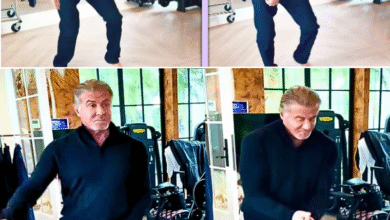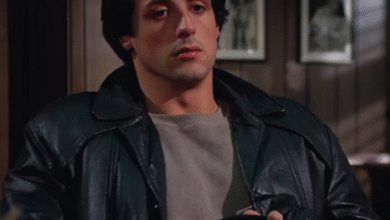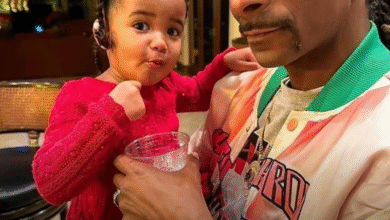“He Knocked Me Off the Horse”—Stallone’s Painful Childhood Moment That Fueled a Hollywood Icon
OPINION: This article may contain commentary which reflects the author's opinion.
Before Sylvester Stallone became synonymous with grit, determination, and the legendary characters Rocky Balboa and John Rambo, he was a promising young athlete in a world far removed from Hollywood: the elite sport of polo. At just 13 years old, Stallone was nationally ranked, with a future seemingly set on the polo field. But a violent and traumatic incident with his father during a match changed everything—forcing Stallone to give up the sport, sell his gear, and ultimately reinvent himself. That painful moment and the resilience it sparked have since defined both his personal philosophy and his career.
A Rising Star on Horseback
Born in 1946 in New York City, Sylvester Stallone grew up in a turbulent household marked by the volatile temperament of his father, Frank Stallone Sr. Despite this, young Stallone found refuge and purpose in polo, a demanding sport that required strength, skill, and strategy. By 13, he had earned a national ranking, impressing coaches and peers alike at Maryland’s Myopia Polo Club, where his family had moved.
Polo was more than a pastime; it was a stabilizing force amid chaos. As Stallone reflected in a 2019 interview with Men’s Health, the discipline of polo helped channel his energies and gave him a sense of direction during a challenging youth. His mother, Jacqueline Stallone, echoed this sentiment, noting that horses and polo were a vital outlet in a household facing financial and emotional strain.
A Violent Fall That Changed the Game
Stallone’s trajectory was shattered during a match in the late 1950s when a confrontation with his father turned physical. Frank Sr., himself a former polo player and a strict coach, struck Stallone in a moment of rage, knocking the boy from his horse in front of teammates and spectators. This public humiliation was deeply painful and marked a breaking point for the young Stallone.
In a 2016 Hollywood Reporter feature, Stallone described how the incident destroyed his trust and love for the sport. “It was like losing a part of myself,” he told GQ in 2020. The emotional scars led him to sell his polo equipment and walk away forever, an act that symbolized the end of a dream and the beginning of a new, uncertain path.
From Setback to Comeback: The Birth of a Fighter
Rather than breaking Stallone’s spirit, the incident ignited a fierce resilience. Redirecting his drive into bodybuilding and acting, Stallone cultivated the toughness and determination that would come to define his iconic screen characters. As a 2018 Variety profile explained, the lesson learned that day was simple but powerful: when life knocks you down, get back on your horse and keep punching.
His famous mantra—“When life knocks you down, remember: Get back on your horse. Keep punching”—first surfaced publicly during the 2006 Rocky Balboa promotion and has since become a universal motto for perseverance. In a 2021 AARP interview, Stallone linked the phrase directly to his childhood polo experience, crediting it for helping him survive personal hardships and industry struggles alike.
A Complex Father-Son Legacy
The physical and emotional wound inflicted by Frank Stallone Sr. left a lasting impact on their relationship. While the bond remained strained throughout Stallone’s life—as documented by Rolling Stone in 2015—the actor later sought to understand his father’s own frustrations and disappointments. This nuanced perspective enriched Stallone’s portrayals of flawed but enduring characters, resonating with audiences worldwide.
Beyond Polo: A Story of Endurance
Sylvester Stallone’s journey from a fallen polo prodigy to Hollywood legend is a testament to resilience born from hardship. That fateful moment when his father knocked him off the horse didn’t end his story—it rewrote it. It forged the unyielding spirit behind some of cinema’s most beloved underdogs, reminding us all that setbacks are simply setups for a greater comeback.



